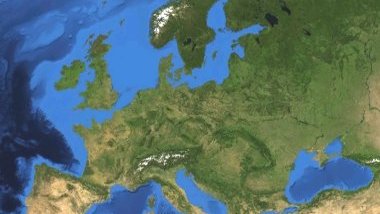These criticisms have truth to them, but I consider none of them to be an obstacle to the move towards a Europe where national languages and a universal command of English coexist for the betterment of mutual comprehension. I will next present thoughts on each of the three abovementioned concerns in turn.
Reduced diversity and complexity of thought
First, it must be noted that the “adoption” of a common language is not an act, but a process. No single political decision can bring about this outcome, but instead a common language is learned by populations through high-quality language education and extensive informal learning. This takes time, but the ultimate outcome is potentially very beneficial for the development of supranational democracy, labour mobility and common identity.
The express purpose of providing Europeans with the tools to acquire a good command of English, or indeed any language we may choose, is to bridge the gap between “a European elite that speaks it, usually badly, and the majority of Europeans that doesn’t speak it”, as Rémi Laurent put it. International elites will always find a common language for themselves, and that’s why it’s necessary to enable everyone to join the linguistic community if we wish to build unity.
The fact remains that not everyone will be able to present their thoughts as precisely as they would like using their second language. That is a problem, but on the other hand if there is no common language at all, the exchange of even more basic ideas is not possible. Problems related to the difficulty of exchanging complex thoughts will remain, but that is despite, not because of, the push to strengthen the understanding of a Europe-wide language by the public.
Expressions unique to one language are a fascinating phenomenon that certainly exemplifies the diversity of Europe. However, the lack of a direct translation doesn’t need to be turned into a problem, since most of the time the unique term can be explained in other words.
The Finnish word “impivaaralaisuus” is difficult to translate directly, but one can always explain that it refers to a certain parochiality and close-mindedness represented by the main characters of the classic novel Seitsemän veljestä (“The Seven Brothers”) from 1870, an era permeated by national romanticism in Finland. One has to have studied English for a bit to be able to talk about “parochiality” and “national romanticism”, but thanks to a good command of a foreign language one can help others learn about nation-specific concepts they may never have heard about before. Imagine the joy of learning similar Czech words, brought to you by English-speaking Czechs! Indeed, a common European language existing alongside national languages can broaden the horizons of all of us.
Speaking English without the English?
With Brexit, the number of native English speakers in the EU is set to decrease into a few million, as Ireland and Malta remain the last EU member states where English is a major language. It’s not difficult to see the irony of non-native English speakers talking to each other in English with only a few English speakers around. However, when two Europeans with different mother tongues speak English, they’re not doing it for the British, but for themselves and their mutual comprehension.
One can argue that for example French or German should replace English because of the political weight of France and Germany in the post-Brexit EU. However, English remains the most common second language for Europeans, and Hubert Balaguy pointed out that the majority of Europeans also consider it the most useful language. This is unlikely to change regardless of Brexit. And let’s not forget that the British may not leave after all, or might be coming back sooner than one would think!
There also are advantages to knowing a language that is somewhat politically neutral in the EU. The outsider’s language is neutral ground. That would be the linguistic equivalent of organising a peace conference in neutral territory. To take the native English speakers to neutral territory in communications between a native and non-native speaker, a “second common language” would ideally be needed, but perhaps the majority of Europeans would rather just grant the English speakers their slight natural advantage than invest time in being fluent in two foreign languages rather than just one. Nothing prevents those willing from learning three or more languages, of course, and in a Europe where national languages continue to exist within national borders, that will never cease to bring practical advantages with it.
The ideological package of language
It is correct that all languages come with a cultural, political and historical package attached to them. However, perhaps the impact of this can be exaggerated. Political groups can seek to transform the lexicon of any language to meet their needs, and if English is the language of neoliberal economics, perhaps that poses a challenge for English-speaking social democrats to come up with new English words that stick.
Personal perceptions of the weight of the package coming with a language may differ. While some argue that choosing to speak English, French or some other language is an inherently political choice reflecting one’s appreciation of a particular country or area’s culture and history, others may think of the choice of language as mainly instrumental and can therefore be just as comfortable with something else than English as the common language as long as it’s practicable. Personally I belong to the latter group. As an aspiring French speaker, perhaps I am unknowingly already contributing to a future where all Europeans can converse with each other in French!




Follow the comments: |
|
